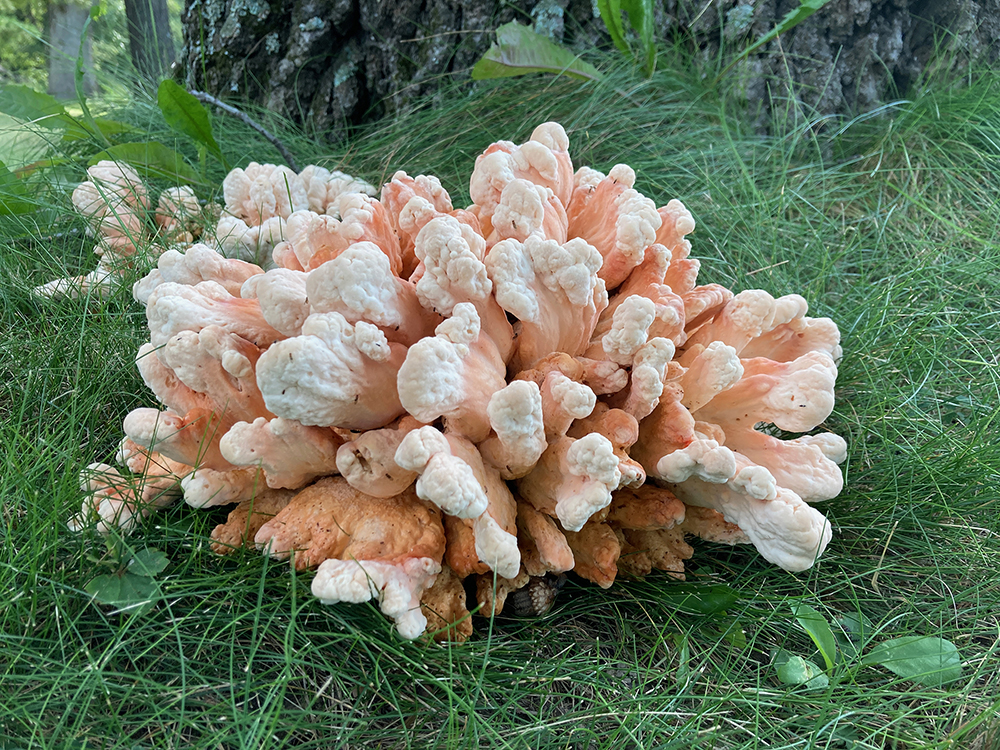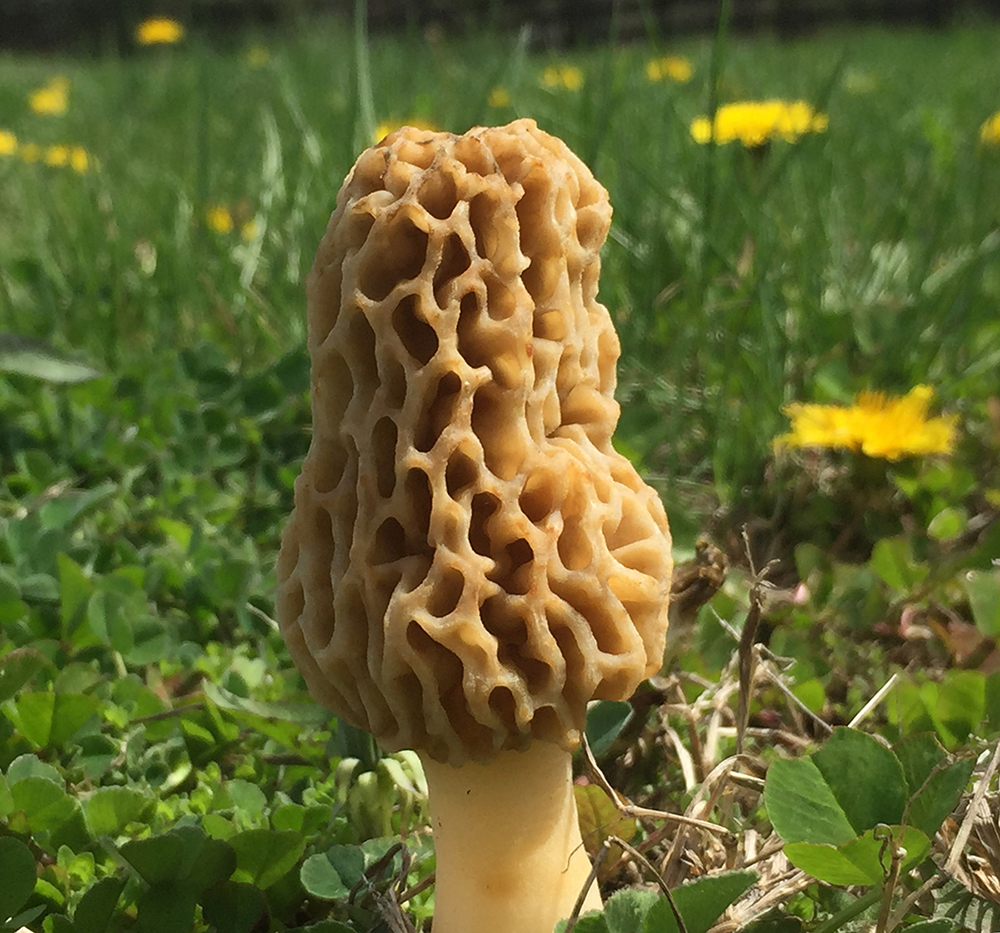
White-pored Chicken of the Woods (Laetiporus cincinnatus) at Tawny Oaks, Peoria County. (PHOTO BY MIKE MILLER)

MIKE MILLER
Over the years, I’ve observed that those who forage for mushrooms seem to be at a different plane of nature appreciation than I normally find myself. Don’t get me wrong, I like a good side of mushrooms, just like many people. However, mushrooms seem to make people do things they normally would not do. Think about Frodo Baggins in Lord of the Rings, who knows better than go onto Farmer Maggott’s property to pilfer mushrooms, but does so repeatedly, and always suffers the wrath of Maggott’s dogs. I’m sure we all know someone who gets that crazed obsession to be out in the woods during morel mushroom season.
I’ve always had an inkling that mushrooms must somehow affect our brains in ways that make people become obsessed with them. It turns out that there might just be more to this than mere speculation. Recent research has shown that there are several symbiotic connections between plants and fungi. The underground portion of fungus, the mycelium, is comprised of threadlike cellular structures that act as a conduit for nutrients and chemical signals to be transferred from one plant to another. Through this fungal pathway, one plant can warn others of an insect infestation or disease. These other plants can then have time to build a defense. The network of the fungal mycelia below our feet is immense. There are 300 miles of fungal mycelia below each footstep as you walk through the forest. For the most part, this network is truly invisible. Does the type of beneficial relationship that fungi offer to the plant kingdom extend to the animal kingdom? It just might.
A Google search of “Stoned Ape Theory” will take you on an interesting theoretical journey to the crossroad where fungi meets human evolution. The theory was popularized by Terence McKenna, an ethnobotanist, mystic, and author. His hypothesis is that the rapid evolution of modern humans was helped along by our ancestors climbing out of the trees, following herds of grazing animals, and coming into contact with psychedelic mushrooms that are found in the dung of herbivores. These mushrooms stimulated portions of the brain that focus on verbal communication. Over the eons, individuals that have advanced communication skills outcompete others and survive. As communication became the key to competitive survival, the effects that the mushrooms had on the human brain became hard-wired into our species. Hence, Homo erectus quickly evolved into Homo sapiens around 100,000 years ago, all thanks to the neurological after-effects of popping magic mushrooms. It should be said that McKenna was also a supporter (and user) of psychedelic mushrooms.
Unfortunately, there currently isn’t any way to prove (or disprove) this theory. However, current research (that is testable) is finding that there are powerful connections between compounds found in some mushrooms and the human nervous system. I guess we should not ignore the obvious… If you go back far enough in the evolutionary tree, we are more closely related to fungi than we are plants. There is an evolutionary kinship that we share. If nothing else, it might explain why we as a species have an affinity, and proclivity, to pick mushrooms and stuff them into our mouths. Just don’t try to use it as a defense when Farmer Maggott’s dogs are chasing you down.

Morel Mushroom (Morchella sp.) in the lawn at Tawny Oaks, Peoria County. (PHOTO BY MIKE MILLER)

Recent Comments